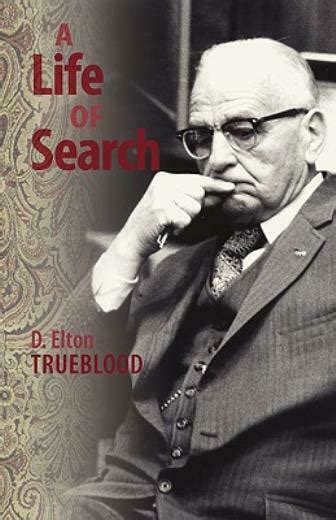A Quote by Lee Strobel
In short, I didn't become a Christian because God promised I would have an even happier life than I had as an atheist. He never promised any such thing. Indeed, following him would inevitably bring divine demotions in the eyes of the world. Rather, I became a Christian because the evidence was so compelling that Jesus really is the one-and-only Son of God who proved his divinity by rising from the dead. That meant following him was the most rational and logical step I could possibly take.
Quote Topics
Any
Atheist
Became
Because
Become
Bring
Christian
Compelling
Could
Dead
Divine
Divinity
Even
Evidence
Eyes
Following
God
Had
Happier
Happier Life
Him
His
Indeed
Inevitably
Jesus
Life
Logical
Meant
Most
Never
Only
Only Son
Possibly
Promised
Proved
Rather
Rational
Really
Rising
Short
Son
Step
Take
Than
Thing
World
Would
Related Quotes
I would know any man as a Christian, would rejoice to know any man as a Christian, whom Jesus would recognize as a Christian; and Jesus Christ, I am sure, in these old days recognized His followers even if they came after Him with the blindest sight, with the most imperfect recognition and acknowledgment of what He was and of what He could do.
Therefore, when a person refuses to come to Christ it is never just because of lack of evidence or because of intellectual difficulties: at root, he refuses to come because he willingly ignores and rejects the drawing of God's Spirit on his heart. No one in the final analysis really fails to become a Christian because of lack of arguments; he fails to become a Christian because he loves darkness rather than light and wants nothing to do with God.
I promised I'd save him, take him home! I promised him!" . . . Thomas hugged Chuck to his chest, squeezed him as tightly as possible, as if that could somehow bring him back, or show thanks for saving his life, for being his friend when no one else would. Thomas cried, wept like he'd never wept before. His great, racking sobs echoed through the chamber like the sounds of tortured pain. (pg 358 hardback)
Q. What is your view of the daily discipline of the Christian life - the need for taking time to be alone with God? Lewis: "We have our New Testament regimental orders upon the subject. I would take it for granted that everyone who becomes a Christian would undertake this practice. It is enjoined upon us by Our Lord; and since they are his commands, I believe in following them. It is always just possible that Jesus Christ meant what he said when He told us to seek the secret place and to close the door.
The Christian is joyful, not because he is blind to injustice and suffering, but because he is convinced that these, in the light of the divine sovereignty, are never ultimate. The Christian can be sad, and often is perplexed, but he is never really worried, because he knows that the purpose of God is to bring all things in heaven and on earth together under one head, even Christ.
An atheist is someone who is certain that God does not exist, someone who has compelling evidence against the existence of God. I know of no such compelling evidence. Because God can be relegated to remote times and places and to ultimate causes, we would have to know a great deal more about the universe than we do now to be sure that no such God exists. To be certain of the existence of God and to be certain of the nonexistence of God seem to me to be the confident extremes in a subject so riddled with doubt and uncertainty as to inspire very little confidence indeed.
We are living in uncertain times. In a world where peace seems to be in short supply, I feel like the world is desperate to see an example of "peace that passes understanding." When someone goes "all in" for God, committing their whole life to Him, peace is one of the gifts we are promised. Someone who is all in for God can take to heart that even though we will have trouble in this world, our lives are in the hands of the one who has overcome this world. When we've been filled with God's peace, only then can we turn around and become instruments of His peace to a hurting world.
I am not an atheist. An atheist is someone who has compelling evidence that there is no Judeo-Christian-Islamic God. I am not that wise, but neither do I consider there to be anything approaching adequate evidence for such a god. Why are you in such a hurry to make up your mind? Why not simply wait until there is compelling evidence?
The Christian life is stamped by 'moral spontaneous originality,' consequently the disciple is open to the same charge that Jesus Christ was, viz., that of inconsistency. But Jesus Christ was always consistent to God, and the Christian must be consistent to the life of the Son of God in him, not consistent to hard and fast creeds. Men pour themselves into creeds, and God has to blast them out of their prejudices before they can become devoted to Jesus Christ.
The essence of Christianity is centered upon the Lord Jesus Christ. The sum and substance of being a Christian is trusting Christ with the entirety of one's being. The height of the Christian life is adoring Christ, the depth of it loving Him, the breadth of it obeying Him, and the length of it following Him. Everything in the Christian life revolves around Jesus Christ. Simply put, Christianity is Christ.
There is a time when every person who encounters Jesus, who believes Jesus is the Son of God, decides that they will spend their life following Him. Some people, like the Apostle Paul, make this decision the minute they meet Him, the minute they become a Christian. Others, like the Apostle Peter, endure years of half-hearted commitment and spiritual confusion before leaping in with all their passion. Still others may enjoy some benefits of God's love and grace without entering into the true joy of a marriage with their maker.
Even if the absence of evidence for a given god were not evidence of its absence, it would still be evidence that the belief in that god is unreasonable. That's the only proposition that any atheist of any kind has to demonstrate in order to win the argument. Because anything beyond that... is just having fun.
They are equal reality. They are two streams of present reality, both equally promised. The Christian dead are already with Christ now, and Christ really lives in the Christian. Christ lives in me. The Christ who was crucified, the Christ whose work is finished, the Christ who is glorified now, has promised (John 15) to bring forth fruit in the Christian, just as the sap of the vine brings forth the fruit in the branch.
































